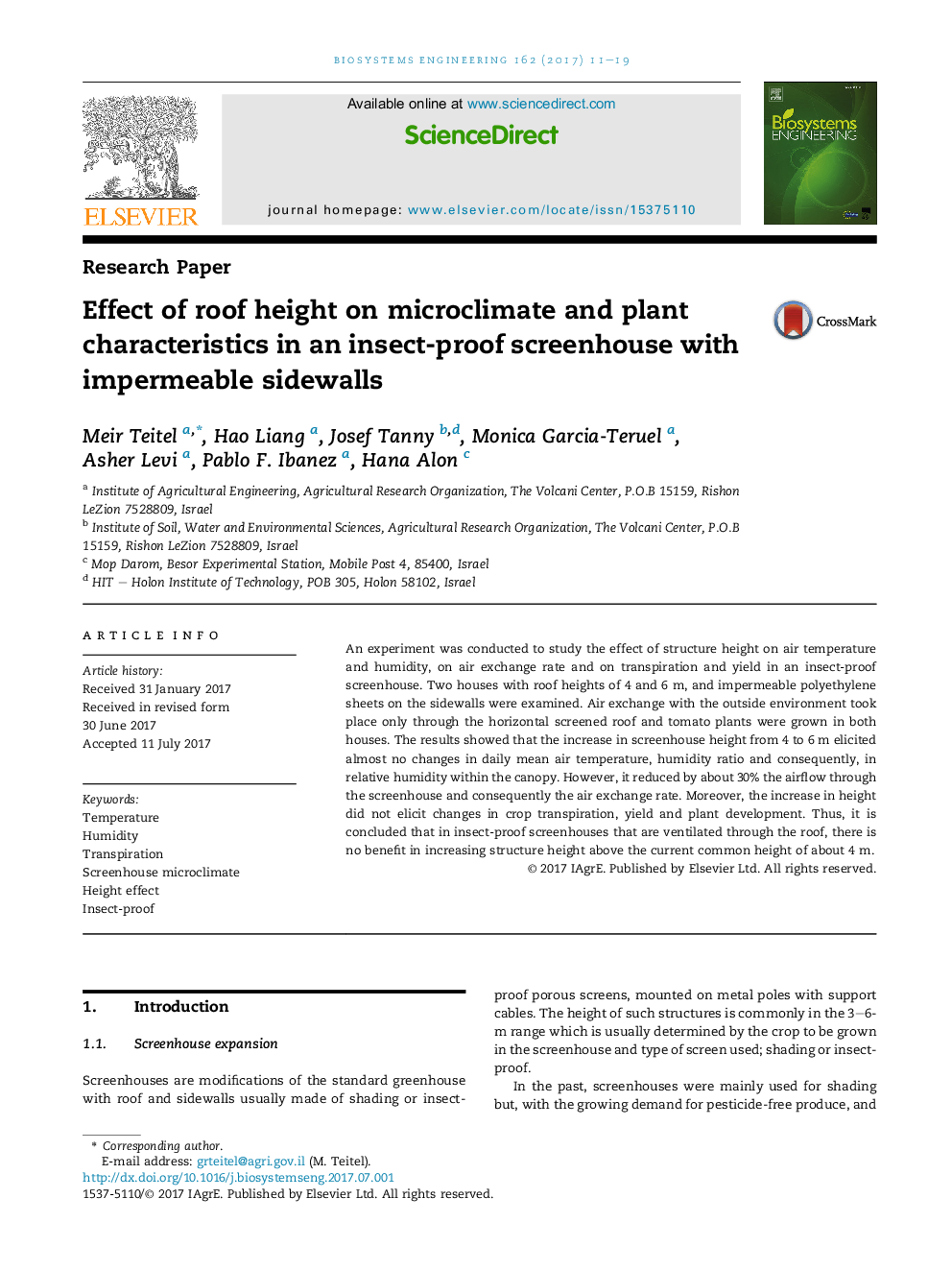| Article ID | Journal | Published Year | Pages | File Type |
|---|---|---|---|---|
| 5471773 | Biosystems Engineering | 2017 | 9 Pages |
Abstract
An experiment was conducted to study the effect of structure height on air temperature and humidity, on air exchange rate and on transpiration and yield in an insect-proof screenhouse. Two houses with roof heights of 4 and 6Â m, and impermeable polyethylene sheets on the sidewalls were examined. Air exchange with the outside environment took place only through the horizontal screened roof and tomato plants were grown in both houses. The results showed that the increase in screenhouse height from 4 to 6Â m elicited almost no changes in daily mean air temperature, humidity ratio and consequently, in relative humidity within the canopy. However, it reduced by about 30% the airflow through the screenhouse and consequently the air exchange rate. Moreover, the increase in height did not elicit changes in crop transpiration, yield and plant development. Thus, it is concluded that in insect-proof screenhouses that are ventilated through the roof, there is no benefit in increasing structure height above the current common height of about 4Â m.
Keywords
Related Topics
Physical Sciences and Engineering
Engineering
Control and Systems Engineering
Authors
Meir Teitel, Hao Liang, Josef Tanny, Monica Garcia-Teruel, Asher Levi, Pablo F. Ibanez, Hana Alon,
